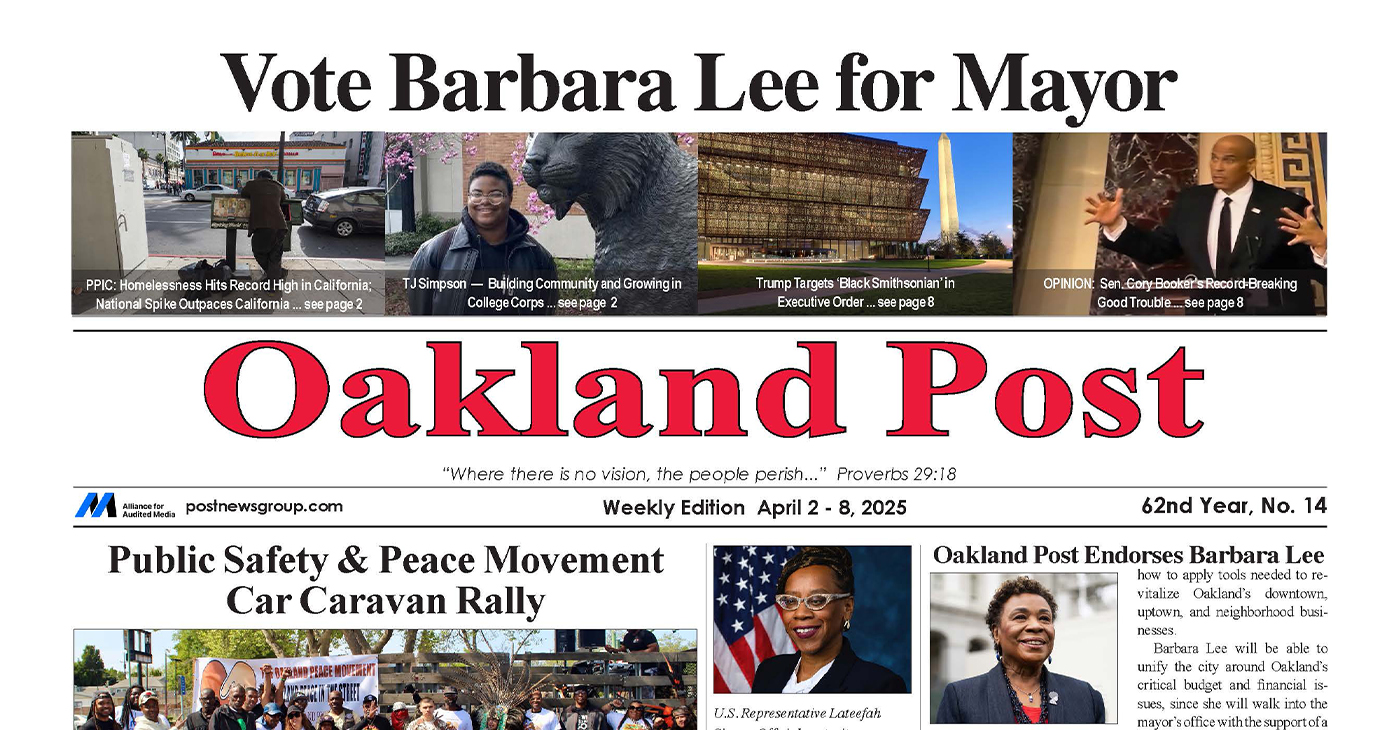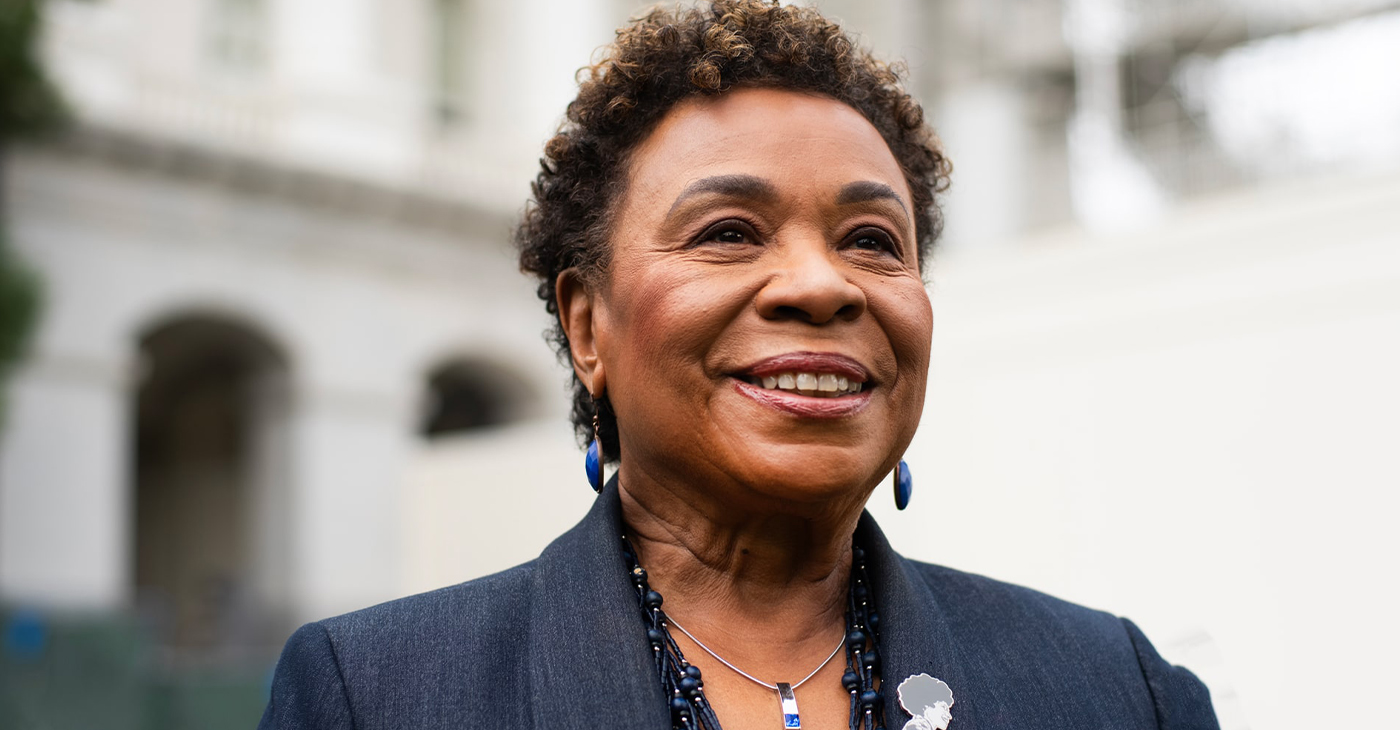Politics
Campaign Finance Protest, Hidden Camera Disrupt High Court
MARK SHERMAN, Associated Press
WASHINGTON (AP) — For the second time in 11 months, opponents of Supreme Court rulings lifting limits on money in political campaigns briefly disrupted proceedings in the courtroom and embarrassed the court by managing to get a camera past court security.
The protest Wednesday took place on the fifth anniversary of the court’s Citizen United ruling that freed corporations and labor unions to spend as much as they want on elections for Congress and president.
Supreme Court police arrested seven people who rose shortly after the justices took the bench and shouted brief statements. “One person, one vote,” said one protester.
An eighth person identified as Ryan Clayton was arrested with a camera, court spokeswoman Kathy Arberg said.
Clayton appears to have made it past stepped-up security screening by court police officers. The new checks were put in place after the protest group 99Rise posted video of a February 2014 courtroom protest on the Internet. The Supreme Court does not allow cameras or audio recording devices in the courtroom. At times, court police check the belts, pens and even wallets of people seeking to enter the courtroom. Not even lawyers about to argue cases are spared the enhanced screening.
99Rise also claimed responsibility for Wednesday’s protest. Its leader, Kai Newkirk, was arrested last year and barred from the court grounds for a year for disrupting the court in February.
Newkirk suggested in an email that more than one person had a camera on Wednesday and promised to post footage online.
The protesters “stood up in the tradition of nonviolent dissent to speak out against corruption and to defend our democracy on the fifth anniversary of Citizens United,” Newkirk said in a telephone interview.
Those arrested were charged with conspiracy-related offenses arising from the courtroom disturbance, Arberg said. Seven of the eight also were charged with violating a law against making “a harangue or oration, or uttering loud, threatening, or abusive language in the Supreme Court Building,” Arberg said.
___
Several hours after the arrest, President Barack Obama issued a statement repeating his criticism of the Citizens United ruling. “The Citizens United decision was wrong, and it has caused real harm to our democracy. With each new campaign season, this dark money floods our airwaves with more and more political ads that pull our politics into the gutter,” the president said in the statement.
Obama refrained from criticizing the decision or the court at his State of the Union address the night before. Five years earlier, Obama used the speech to chide the court as Chief Justice John Roberts and most of his colleagues sat impassively in their customary places in the front rows of the House of Representatives. Justice Samuel Alito made headlines when he was captured on camera mouthing the words “not true” in response to some of Obama’s criticism.
Alito has not attended a State of the Union since.
___
After the protest and arguments in an important housing discrimination case, the justices spent an hour chewing over an appropriate way to regulate police use of dogs that sniff for drugs during traffic stops when officers have no reasonable suspicion that a vehicle contains drugs. The case seems to come down to how long police may extend a traffic stop to conduct the dog sniff, without violating the constitutional rights of the occupants of the car.
And this led some justices to think about their own experiences of being pulled over.
“Keeping me past giving me the ticket is annoying as heck whether it’s 5 minutes, 10 minutes, 45,” Justice Sonia Sotomayor said.
As he often does, Justice Stephen Breyer searched for a way to resolve the case reasonably, allowing police officers to do their jobs without trampling on citizens’ rights. Breyer said that it is hard to put himself in the shoes of an officer. “We are not traffic policemen, and our experience on stops comes from, unfortunately, being the stoppee rather than the stopper,” he said.
Roberts, with a bit of a wink and a nod, did not acknowledge having himself been stopped by police, but he said he knows people who have been.
Can an officer ask for the car’s registration, Roberts asked? “Usually, people have told me, when you’re stopped, the officer says, ‘License and registration.’ Is that OK?” he asked.
Laughter filled the courtroom and it seemed no one laughed louder than Justice Antonin Scalia, sitting next to the chief justice.
Scalia has a reputation as a bit of a leadfoot. In 2011, he was ticketed by U.S. Park Police for following too closely when he rear-ended the car in front of him and set off a four-car accident on the George Washington Parkway in suburban Virginia. No one was hurt.
___
Follow Mark Sherman on Twitter at: http://www.twitter.com/shermancourt.
Copyright 2015 The Associated Press. All rights reserved. This material may not be published, broadcast, rewritten or redistributed.
Activism
Oakland Post: Week of April 2 – 8, 2025
The printed Weekly Edition of the Oakland Post: Week of April 2 – 8, 2025

To enlarge your view of this issue, use the slider, magnifying glass icon or full page icon in the lower right corner of the browser window.
Activism
Oakland Post Endorses Barbara Lee
Barbara Lee will be able to unify the city around Oakland’s critical budget and financial issues, since she will walk into the mayor’s office with the support of a super majority of seven city council members — enabling her to achieve much-needed consensus on moving Oakland into a successful future.

As we end the celebration of Women’s History Month in Oakland, we endorse Barbara Lee, a woman of demonstrated historical significance. In our opinion, she has the best chance of uniting the city and achieving our needs for affordable housing, public safety, and fiscal accountability.
As a former small business owner, Barbara Lee understands how to apply tools needed to revitalize Oakland’s downtown, uptown, and neighborhood businesses.
Barbara Lee will be able to unify the city around Oakland’s critical budget and financial issues, since she will walk into the mayor’s office with the support of a super majority of seven city council members — enabling her to achieve much-needed consensus on moving Oakland into a successful future.
It is notable that many of those who fought politically on both sides of the recent recall election battles have now laid down their weapons and become brothers and sisters in support of Barbara Lee. The Oakland Post is pleased to join them.
Activism
Oakland Post: Week of March 28 – April 1, 2025
The printed Weekly Edition of the Oakland Post: Week of March 28 – April 1, 2025

To enlarge your view of this issue, use the slider, magnifying glass icon or full page icon in the lower right corner of the browser window.
-

 Activism2 weeks ago
Activism2 weeks agoWe Fought on Opposite Sides of the Sheng Thao Recall. Here’s Why We’re Uniting Behind Barbara Lee for Oakland Mayor
-

 #NNPA BlackPress2 weeks ago
#NNPA BlackPress2 weeks agoRev. Dr. Jamal Bryant’s Black Church Target Boycott Mobilizes 150,000
-

 Activism4 weeks ago
Activism4 weeks agoOakland Post: Week of March 5 – 11, 2025
-

 Activism3 weeks ago
Activism3 weeks agoSan Francisco Is Investing Millions to Address Food Insecurity. Is Oakland Doing the Same?
-

 #NNPA BlackPress4 weeks ago
#NNPA BlackPress4 weeks agoTrump Moves to Dismantle Education Department
-

 #NNPA BlackPress2 weeks ago
#NNPA BlackPress2 weeks agoRecently Approved Budget Plan Favors Wealthy, Slashes Aid to Low-Income Americans
-

 #NNPA BlackPress4 weeks ago
#NNPA BlackPress4 weeks agoFighting to Keep Blackness
-

 Activism2 weeks ago
Activism2 weeks agoFaith Leaders Back Barbara Lee for Mayor, Criticize Candidate Loren Taylor for Dishonest Campaigning























































